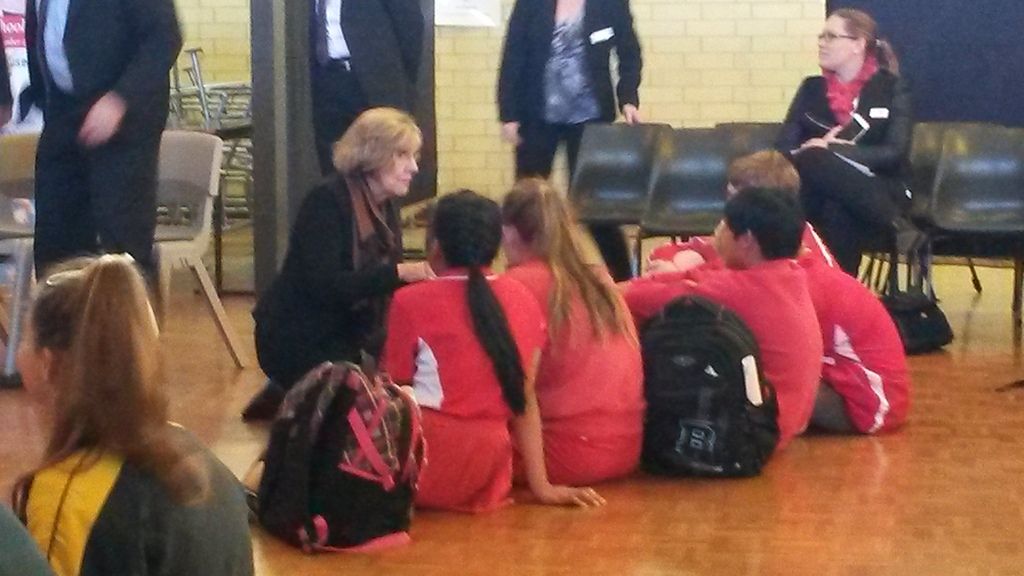Going up to Wongan Hills wasn't just a complete break for me.
We still had to work, y'know. More specifically, we were showing kids how great science is.
We had them extract DNA from simple strawberries, which were visible and touchable.
In the end, I even gave a couple of presentations to the school.
It was a really fun experience working with children, one I think all people should be exposed to (just to see whether they'll love/hate it).
Although running the same mundane tasks school-after-school left everyone pretty tired, I actually felt invigorated and excited.
And I was doing what I loved: science.
Plus, some of the kids were quite into science. Some of them asked about forensics and SPOILERS splicing (I don't even know what that is!).
I suppose this is another form of science communication.
I've tried doing this by talking to the general public at events with our MicroBlitz stalls, but I think I prefer school-trips much more. Especially if they're in middle/high school.
Education has always been something of a last resort for me, in terms of career directions.
It might've been low on my list, but it was always there.
People keep telling me "We need more STEM (science, technology, engineering, mathematics) teachers".
Of course, I've also learnt to take everything with a grain of salt because "every sector is growing and prospects are looking quite good", according to every career guide I've read.
People also fear that they'll be sent to teach in rural schools, which isn't very exciting.
I'm not sure how 'rural' Wongan Hills is, compared to some of the other schools. But if I'm assigned to that kinda town, sure accessing the Internet might be a little slow, but I think I can live with that.
And lucky me, there's a graduate program that fits all these criteria: Teach for Australia.
The basic gist of it is that you take an intensive course in teaching. After that, your study load is reduced but they assign you to a educationally-disadvantaged school to teach for (at least) two years.
Your teaching load is also reduced so you can juggle teaching and learning at the same time (but mostly teaching).
You can the full benefits (including salary) of a secondary teacher while working those two years. And at the end of it, you 'graduate' with a Masters of Education (Secondary). That's pree' sweet!
You literally get paid to get a degree.
Of course, I'm well aware that, like any other program which eats up funding, people criticise it for many flaws, including sending 'amateurs' into an already disadvantaged school.
But hey, I'm gonna take this opportunity if it comes along.
When I say 'if', I mean only a small portion of people actually get in (>10%?).
But I can still dream, can't I?
Might start volunteering for some uni organisations such as Teach Learn Grow and maybe some pedagogical research with ULTRIS next year to get a better picture of how these things actually work.
Listening to Telephone - James Blunt
Funf,
TK

0 comments:
Post a Comment